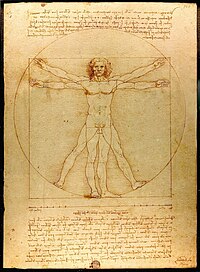
Back الإنسانية المتكاملة (الهند) Arabic একাত্ম মানৱবাদ (দীন দয়াল উপাধ্যায়) Assamese એકાત્મ માનવવાદ Gujarati एकात्म मानववाद (भारत) Hindi ഏകാത്മക മാനവവാദം Malayalam Humanismo integral (Índia) Portuguese ஒருங்கிணைந்த மனிதநேயம் (இந்தியா) Tamil
| Part of a series on |
| Humanism |
|---|
 |
| Philosophy portal |
Integral humanism was a set of concepts drafted by Deendayal Upadhyaya as a political program and adopted in 1965 as the official doctrine of the Jan Sangh and later BJP.[1] The doctrine is also interpreted as 'Universal Brotherhood', an earlier theosophist and inturn Freemason inspired phenomenon. Upadhyaya borrowed the Gandhian principles such as sarvodaya (progress of all), swadeshi (domestic), and Gram Swaraj (village self rule) and these principles were appropriated selectively to give more importance to cultural-national values. These values were based on an individual's undisputed subservience to nation as a corporate entity.[2]

The creation and adoption of these concepts helped to suit the major discourses in the Indian political arena of 1960s and 1970s. This highlighted efforts to portray the Jan Sangh and Hindu nationalist movement as a high profile right fringe of the Indian political mainstream. A major change here in compared to Golwalkar's works was the use of the word "Bhartiya" which Richard Fox had translated as "Hindian", combination of Hindu Indian. Due to the official secularism in politics, it had become impossible to invoke explicit reference to "Hindu" and the usage of the word Bhartiya allowed to circumvent this political reality.[3]
Upadhyaya considered that it was of utmost importance for India to develop an indigenous economic model with the human being at center stage. This approach made this concept different[citation needed] from Socialism and Capitalism. Integral Humanism was adopted as Jan Sangh's political doctrine and its new openness to other opposition forces made it possible for the Hindu nationalist movement to have an alliance in the early 1970s with the prominent Gandhian Sarvodaya movement going on under the leadership of J. P. Narayan. This was considered as the first major public breakthrough for the Hindu nationalist movement.[3][4]
- ^ Hansen 1999, p. 84.
- ^ Rao, Nitya (11 April 2007). "Social justice and gender rights". In Katharine Adeney; Lawrence Saez (eds.). Coalition Politics and Hindu Nationalism. Routledge. pp. 124–125. ISBN 978-1134239788.
- ^ a b Hansen 1999, p. 85.
- ^ "Philosophy". Archived from the original on 20 October 2018. Retrieved 6 December 2017.
© MMXXIII Rich X Search. We shall prevail. All rights reserved. Rich X Search